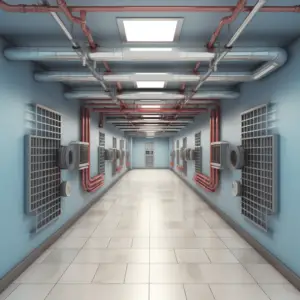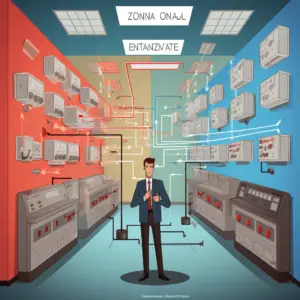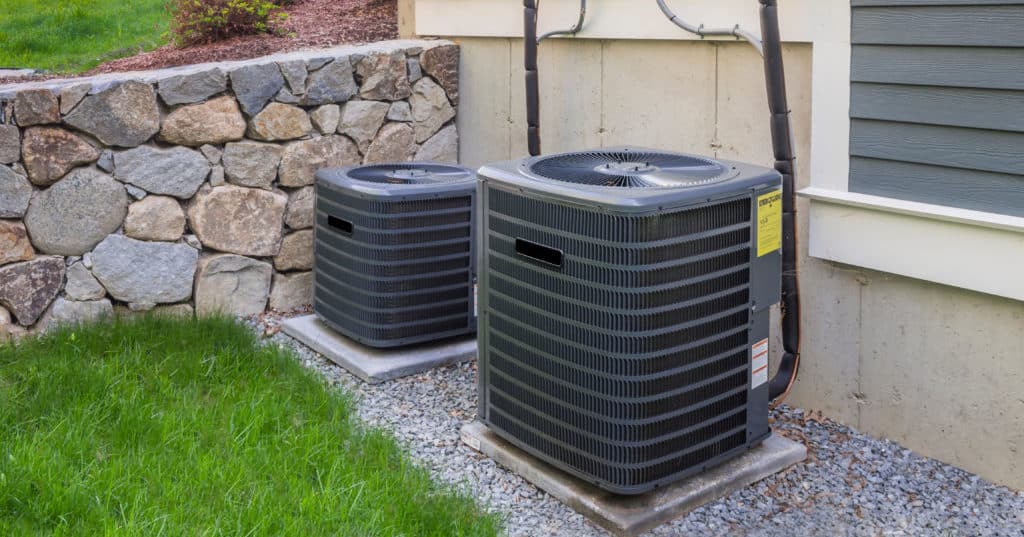If you’ve ever been stuck with a thermostat, you know how important a functioning HVAC system is. A competent HVAC system improves energy efficiency and provides more precise control over the house.
Maintaining optimum house temperatures will also lower your energy expenditures, especially if your HVAC runs too hard when it’s not needed.
Table of Contents
Dual Zone HVAC Vs Two Units: A Breakdown

Today, there are a couple of two approaches when it comes to upgrading or installing a home’s control system; the HVAC zoning system, and the Dual-system. In this article, we will be breaking down the pros and cons of both approaches to determine the best option for your home.
HVAC Zoning Explained
Basic HVAC zoning systems consist of dampers connected to the home’s central HVAC unit that control particular air dust in different zones/parts of the house. There are automatic and manual dampers. Manual dampers have been replaced with more modern ones, thus this essay will focus on those.
A control panel in each zone controls how much the dampers can open or close with the automatic system. It then regulates the zone’s heating or cooling.
A conventional HVAC zoning system can handle as many rooms as the home with as few as two zones (lower and higher floors). The best number of zones for a 2-bedroom, 2-story home is usually four, one for each bedroom, lower, and higher floors.
Pros of HVAC Zoning
Budget-Friendly and Lower Maintenance Cost
Since you’ll only buy one HVAC unit for the house, zoning systems are cheaper upfront, especially compared to two systems. Thus, you’ll only need to maintain one HVAC system, making maintenance easier and cheaper.
Centralized Controls
Each HVAC system links to a single HVAC unit, allowing several control levels and centralized master control. This is useful for parental controls, where the master control panel can limit the temperature in a bedroom zone.
Great Balance of Thermal Capacity
HVAC units have rated thermal capacity, which defines how much heating or cooling they can deliver. Therefore, with just one VAC system, you won’t have to worry about calculating the separate thermal capacities of the zones covered by two different systems.
Downsides to HVAC Zoning
Just One Setting at a Time
When you have just one HVAC unit in an entire house, it means there can only be one set in operation at a time. For instance, you will not be able to set a basement to heating while the other floors are set to cool.
No Redundancy
When you have just one HVAC system in the whole house means that in the event that it breaks down, you will have no backup until the unit is fixed.
Loss of Efficiency
Due to the length of the ducts used in the installation, routing heating or cooling to zones far from the HVAC unit can reduce efficiency. If your HVAC system breaks down, you’ll have no backup until it’s fixed.
Dual-Zone HVAC Explained
A house with a dual/two-system HVAC arrangement has two HVAC systems for two major subdivisions, such as two storeys.
Pros of a Two-Zoned HVAC System
There are many advantages that come along with a dual-zoned HVAC system, especially for homes with multiple stories, or those homes with wide areas and multiple rooms.
Customizable Temperature settings
This is probably one of the major highlights associated with a two-zoned system. The ability to completely control the temperature in various areas of the home is an experience every homeowner would greatly appreciate. No more struggles dealing with the thermostat.
Lower Energy Bills
One HVAC instead of two or more air conditioning units will minimize energy expenditures. The dual-zoned system also makes use of variable speed motors, which reduces the cost by about 30% of the average energy cost.
Variable speed is particularly important when it comes to saving energy. It allows the system to utilize only the amount of energy that it requires to achieve a certain temperature.
Lesser Cost for Maintenance
With a dual-zoned control, the HVAC system will not be working strenuously as in the case of regular HVAC systems. This is because the routing of cool or hot air will be going to open systems.
Downsides to Two-HVAC System

Higher installation and Maintenance Costs
As expected, installing a dual-zone HVAC system is twice as expensive as a single-zone arrangement. Maintenance will be costly because you will have several systems to maintain and repair over time.
Potential Increase in Energy Cost
Although dual-zoned HVAC systems are smaller than zoning units, they may use more energy if they have the same thermal capacity.
Conclusion
It’s important to note that the two climate control approaches discussed in this article cover only the basics. There are many more factors to take into account to determine the most suitable HVAC system for your home. However, we recommend consulting an expert to inspect your home and determine the best HVAC configuration for your heating and cooling needs.


